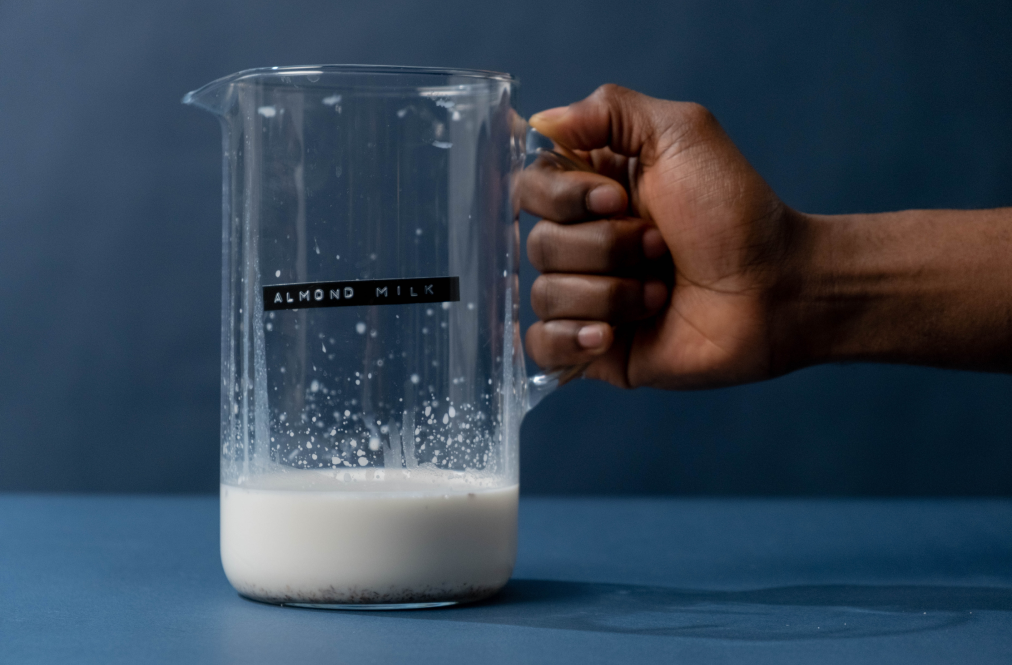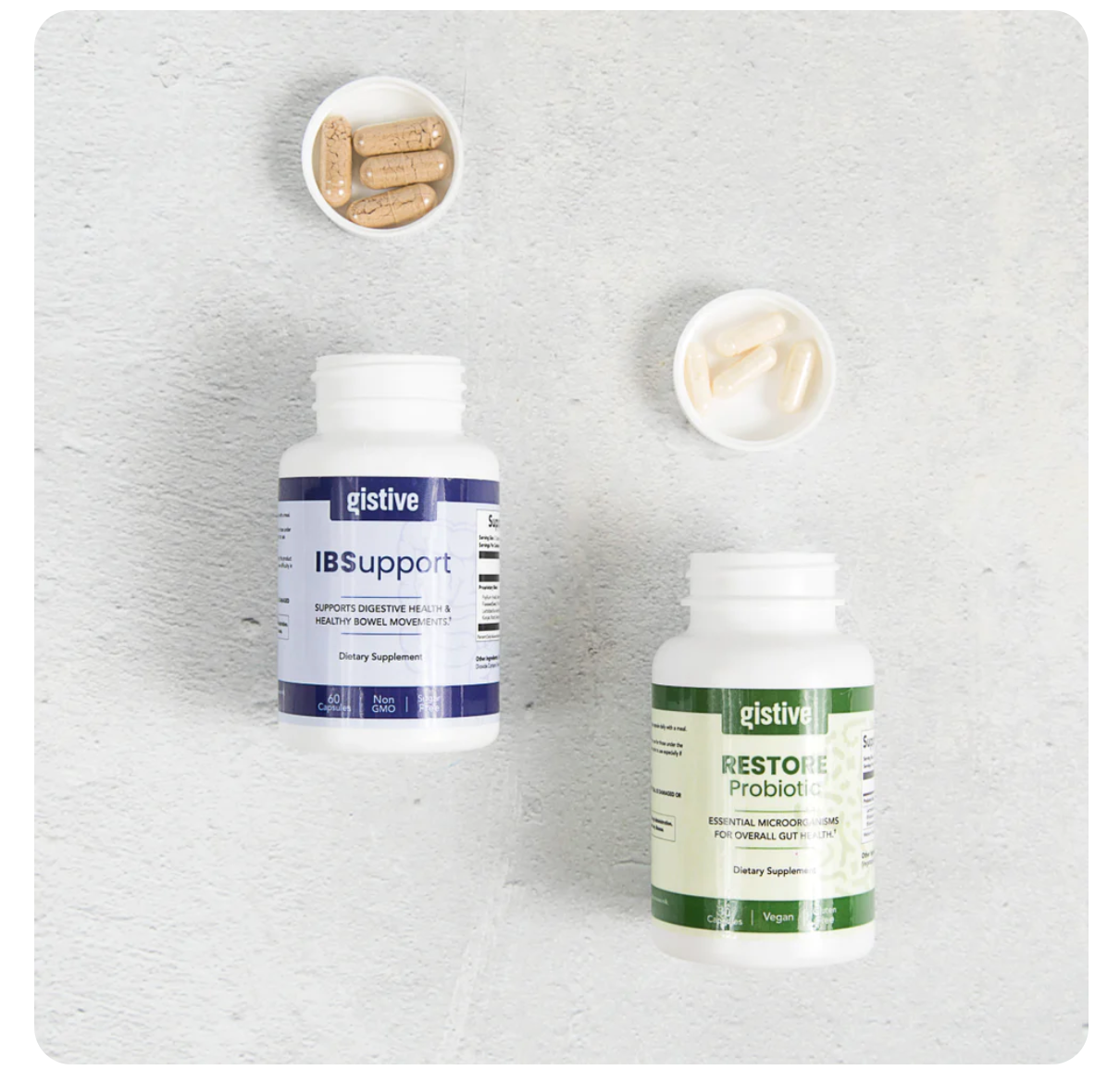If you're someone who loves almond milk, then you've likely heard of all the health benefits associated with it: much higher concentrations of vitamins and minerals than dairy milk, and an abundance of healthy fats and antioxidants, to name a few.
But it’s not all sunshine and rainbows out there. Many people are convinced that this vegan dairy option is the root of all their constipation.

Seeing as this is something that’s gaining traction, we had our experts butt their heads together, and explain it all as simply as possible in this short but insightful guide.
However, in short, almond milk doesn't directly cause constipation. A large portion of it depends on the brand of almond milk you're going for.
There are also a lot of other reasons as to why you're getting constipated that are connected to drinking almond milk, so if you're someone that enjoys it, make sure to read this guide till the end.
Table of Contents
Almond Milk - A Background On Its Health Benefits

Almond milk has been gaining popularity in recent years as more people are turning towards plant-based alternatives to traditional dairy products. Made by blending almonds with water, almond milk is not only lactose-free and vegan-friendly, but it also brings several health benefits to the table.
As various studies suggest, almond milk is rich in vitamins and minerals, including vitamin E, magnesium, and calcium. These nutrients are crucial for maintaining good bone, heart, and skin health.
Almond milk is also low in calories and has no cholesterol, making it an excellent choice for weight-watchers and those with high cholesterol levels.
There’s a lot of good involved when you start to drink almond milk, but if you’re getting constipated, you might be tempted to leave it all behind. Make sure to read till the end, as we explain how and why that happens!
Why Is Almond Milk Making Me Constipated?

We’ve discussed this before in our previous guides, which also included food items like almond milk that are blamed for constipation.
But here’s the thing.
There’s no direct relation between almond milk and you getting constipated, and if you are, it’s probably because of the calcium carbonate in it.
Yes. Since almond milk in its raw form doesn't make for a great mouthfeel, brands, and companies add an excessive amount of calcium carbonate to it to give it that 'milk' feel.
Pair that with an extra layer of preservatives, this high amount of two not-so-good things tends to cause constipation.
Can Almond Milk Give You Diarrhea

Have you ever sipped on a delicious almond milk latte, only to experience stomach discomfort a few hours later? If you have, then you might be wondering if almond milk can give you diarrhea.
It’s slightly possible, but yet again, almond milk as a whole isn’t meant to be blamed.
While almond milk itself is perfectly healthy, some people may experience digestive issues due to an intolerance or allergy to nuts.
Additionally, certain brands of almond milk may contain additives or thickeners that can be difficult for some people to digest.
If you suspect that almond milk is the culprit, try eliminating it from your diet and see if your symptoms improve. Or better yet, try out an almond milk brand that’s not putting anything artificial in it, and see if the problem persists.
Is Almond Milk Good For Your Digestive System?
If you're cutting out the preservatives, and additional calcium carbonate that store-bought almond milk has, almond milk is great for digestion.
Being high in fiber, almonds contain both soluble and insoluble fiber that perfect your gut motility, add bulk to your stool, and make sure that you’re more regular in the bathroom
This is also why we recommend using homemade almond milk, as you're less prone to getting any digestive problems, and you can properly reap the benefits of almond milk that are often suppressed by ailments like constipation and diarrhea.
Is Almond Milk Safe For IBS?
If you're dealing with irritable bowel syndrome (IBS), finding the right foods to eat can be a challenging process, and a single mistake means nights full of stomach cramps and pain. Almond milk is a popular dairy-free alternative and vegan alternative to cow’s milk, but is it safe for your IBS?
Short put, yes. Most of the time, people with IBS can handle almond milk without any issues or IBS flare-ups. Almonds are low in FODMAPs, which are the types of carbohydrates and the most common trigger for IBS symptoms
That being said, everyone's body is unique, and some individuals with IBS may find that almond milk doesn't agree with them. As with any new food you introduce to your diet, it's important to pay attention to how your body reacts and talk to your doctor if you have any concerns.
Other Reasons For Your Constipation
Now that we've established the fact that almond milk isn't the sole cause of your constipation, it's time to list some common reasons why you might be getting constipated from time to time - especially after drinking almond milk.
Lactose Intolerance
When someone with lactose intolerance consumes dairy products, their body struggles to break down the lactose (a common sugar found in most dairy items). This can cause a bunch of unpleasant symptoms like bloating, gas, and diarrhea.
But what many people don't realize is that it can also lead to constipation. When the lactose is not properly digested, it can ferment in the gut, creating excess gas and making it difficult for stool to pass through the intestines.
You’re Not Consuming High Fiber Foods
If you're not getting enough fiber in your diet, it could be the culprit behind those uncomfortable and sometimes downright painful blocked-up feelings. Fiber is an essential component for digestive health, as it helps to keep things moving along in our digestive system.
Without enough fiber, things can start to slow down and get backed up, leaving you feeling bloated and uncomfortable. There are plenty of tasty and high-fiber foods out there to incorporate into your diet, like beans, whole grains, and fruits and veggies.
Make sure to eat a lot of fiber throughout the day. You can either opt to take it in the form of drinks and food, or dietary supplements that can replenish the fiber for your gut performance.
You’re Not Drinking Enough Water
When you don't drink enough water, your body tries to conserve it by taking more fluid out of your stools. This can lead to dry, hard stools that are difficult to pass. So, to avoid that uncomfortable feeling of being backed up, make sure you're staying hydrated by drinking plenty of water throughout the day.
Trust me, you can’t go wrong with this. A good bowel movement routine, good skin, and various other health benefits are waiting for you.
Other Ways To Relieve Constipation
Constipation can be a pain in the you-know-where(literally), but you don't have to feel clogged up all the time. Besides store-bought laxatives that can do more bad than good, there are a lot of different things you can do to get rid of constipation, and it all starts with what you put inside your body.
Probiotic Supplements

Probiotic supplements have become a popular way to help alleviate this common ailment. Probiotics are live bacteria and yeasts that are good for your gut health. They work by breaking down food particles in your gut and promoting healthy bowel function.
With the help of probiotic supplements, your digestive system can run smoothly, making it easier to pass stool and reducing the likelihood of constipation.
Fun fact: IBSupport by Gistive has the necessary probiotic strain and 7 different superfoods that fulfill your fiber intake for the day, allowing you to get rid of constipation easily. Check it out here!
Oat Milk

This dairy-free alternative is not only delicious, but it also has properties that can help relieve constipation.
Oats are high in fiber which works wonders for digestive health. Specifically, a soluble fiber that dissolves in water creates a gel-like substance in the gut that helps soften stools and promote regular bowel movements.
Plus, oat milk is easy to incorporate into your diet as a creamy addition to your morning coffee or incorporated into smoothies for a midday boost.
Rice Milk

Rice milk isn’t just a great alternative to dairy milk for those who are lactose intolerant, but it also contains important nutrients and fibers that can help regulate digestion and prevent constipation. What makes it super great is that like oat milk, it’s really easy to fit in with your diet.
Though we recommend incorporating rice milk in your breakfast, so it can start doing its magic on your digestive system right after your wake up
Bottom Line
Whether you're using commercial almond milk or making your own almond milk, you must know how this vegan alternative affects your body, and whether or not the constipation that you're riddled with is coming from almond milk or not.
However, even though we’ve mentioned great ways to alleviate your constipation, if the problem persists, going to the doctor's office and getting a routine checkup is the best thing to do. Oftentimes, constipation rises as a side effect of some bigger ailment, and the sooner you find out about it, the better.
Check out similar guides on our website, as we uncover various topics that revolve around your gut health, digestive system, and more.

